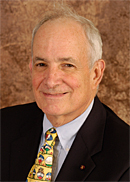From Larry Swanson, Interim Dean of SoMAS and Director of MSRC.
Welcome to all new faculty, staff and students and welcome back to those who have been away for the summer either on vacation or undertaking research projects in the field. Certainly there has been considerable activity here for the past several months. The search for a new dean is well underway. We have about 34 Marine and Atmospheric Sciences graduate students entering the program and we now have approximately 480 undergraduate majors. The early fall is a busy and exciting time and this one will be no exception. There will be several noticeable changes within SoMAS. Perhaps foremost is that this is the first full academic year that SBU’s Sustainability Program is an integral part of SoMAS. So, I want to particularly say that it’s great to have Sustainability on board and we all look forward to working together. As a consequence, there has been some realignment of courses in our undergraduate programs as well as personnel shifts. SoMAS will also have a larger footprint on the main campus as the Sustainability offices are in the Frank Melville Jr. Memorial Library. I hope all of us on South Campus will drop in to say hello and that Sustainability faculty, staff, and students will frequent South Campus as well. In fact, we are establishing an office for the Sustainability faculty in Endeavor Hall.

Larry Swanson, Interim Dean of SoMAS
SoMAS is also developing strong ties with the Civil Engineering Department. We now jointly administer and teach the “Advanced Graduate Certificate in Coastal Engineering and Management Program,” which can be taken online or in person. The newly established Center for Clean Water Technology, co-managed by SoMAS and Civil Engineering, focuses on the development of more effective and less costly means to treat domestic waste water, primarily for single-family homes that have proliferated here in eastern Long Island — contributing to the degradation of our outstanding water supply as well as our coastal waters.
The summer of 2016 has been a time when we in the U.S. have experienced a number of problems that underscore the ways in which we struggle to live in harmony with our environment. The extensive flooding in the south and the wildfires in California come to mind. We don’t need a major event like Superstorm Sandy to bring this message home. Long Island is experiencing a drought, yet people continue to water lawns. As the semester is beginning, we had 3-4 inches of rain in an hour that flooded parts of Endeavour Hall. Lead has been found in a number of public school water supplies, and at one time, following a moderate rain, some 62 beaches were closed to swimming because of the fear of bacterial pollution.
Many of our faculty have been engaged in investigating the complexities of these issues as we strive to understand climate impacts and their ramifications as population and attendant development continue to expand. While they address fundamental oceanographic and atmospheric problems, they recognize that they must Make Scientific Research Count (MSRC, our former name). Thus, one hears much about how our research can directly contribute to the principles behind such terms as restoration, sustainability, and resiliency. But research success means little if its results and potential benefits aren’t effectively communicated, so that our governmental officials, industrial and community leaders might make meaningful changes in the way we live with and manage our environment. Consequently, we continue to emphasize the need to hone written and verbal skills throughout our programs. The research we undertake here at SoMAS has never been more important or relevant.
So here is to all having a great new academic year — work hard and enjoy!





